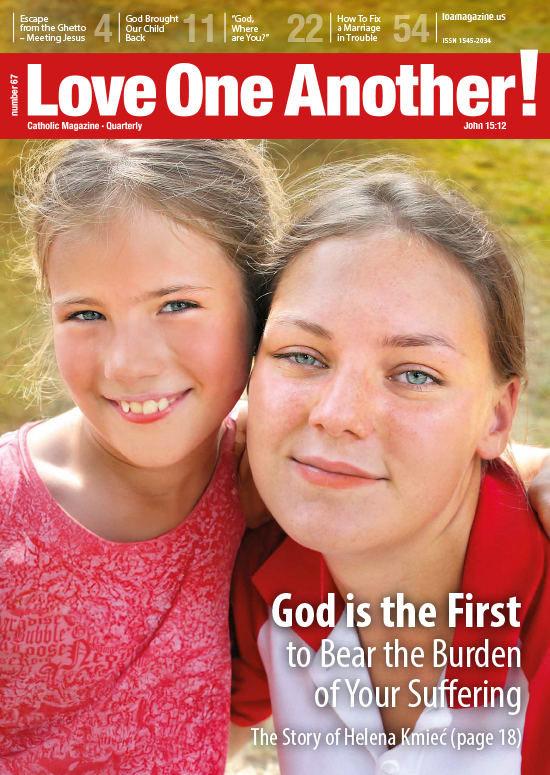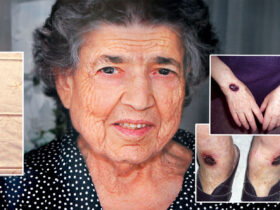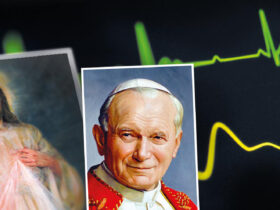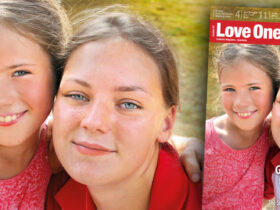The Healing Power of Christ
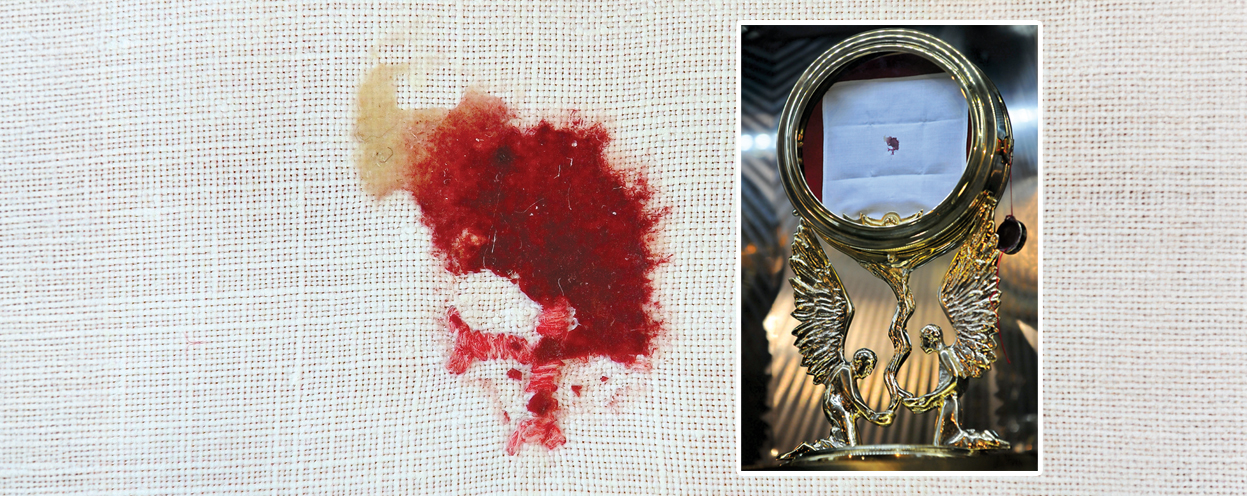
Jesus, ever present in the Eucharist, bids each of us to come to Him with all our problems. “Come to me, all who labor and are heavy laden, and I will give you rest” (Mat 11: 28).
In order to come to Jesus, we need first to believe in His real presence in the Eucharist. The Eucharistic miracle at Sokółka is a most powerful reminder from God that the Eucharist is our greatest and most precious gift, for it is the Risen Lord Himself—“the gift of himself, of his person in his sacred humanity, as well as the gift of his saving work (Ecclesia de Eucharistia, 11).
Healings at Sokółka
St. Anthony’s Collegiate Church observes perpetual adoration of the Blessed Sacrament. People may come to Jesus and entrust to Him at Holy Mass or during public adoration all their pains, joys, and troubles. When we begin to remove from our hearts all the barriers and obstacles that block the action of Christ’s all-powerful love, He is able to act in our lives and work wondrous healings in our souls and bodies.
The parish archives at Sokółka document a great number of such miraculous healings. I cite a few of them:
A woman suffering greatly from advanced cancer came to Sokółka from Sweden. Praying before the Blessed Sacrament, she entrusted to Jesus all her pain, fears, and anguish. In the Sacrament of Penance, she immersed herself in the ocean of Divine Mercy by confessing her sins to Jesus. She requested a special Holy Mass during which she offered herself entirely to God as His exclusive possession. After Mass, she prayed long and fervently, abiding with Jesus present in the Most Blessed Sacrament. Over several days the unbearable pain began to subside and eventually left her altogether. Subsequent medical examination indicated that the woman was completely cured—not a trace of the cancerous disease remained.
The parish archives contain a medical report detailing the miraculous healing of a small child, Jacob Rapier, who had been stricken by a grave illness; namely, asperger syndrome. Jacob’s grandmother requested a Holy Mass for the child’s healing. The Mass was celebrated on July 29, 2011 at St. Anthony’s Collegiate Church in Sokółka. Shortly after the Mass, the parents noticed that all the symptoms of the disease had left the child. Medical tests certified that little Jacob was completely cured. The parents and grandmother attribute this extraordinary healing to the healing power of Christ in the Eucharist.
Jesus who is present in the Eucharist accomplishes extraordinary things in the lives of people who entrust themselves entirely to Him and make a clean break with any kind of sin. Once we begin to remove from our hearts every sinful impediment, Christ, by the healing power of His love, works the most important healing—that of our souls; then, if He deems it necessary, He will heal the disease of our body as well. Documented in St. Anthony’s archives are the miraculous healings, in February of 2011, of 25-year-old Anna Jazurek, from advanced breast cancer, and high-school student Justyna Popowczak, from cancer of the liver. The physicians all agree that from a medical standpoint they are unable to account for these healings.
For Jesus, who is with us in the Eucharist, there are no hopeless situations.
In August of 2011, a tragic accident occurred at a waste disposal site near Sokółka. Jacek Dębko, a worker there, was dragged into the machine used to compress the waste. He suffered a severely crushed skull. When they brought Jacek to the hospital, the doctors held out no hope of his survival. Monsignor Stanisław Gniedziejko, St. Anthony’s pastor, encouraged the family to place boundless trust in Christ, receive the Sacrament of Penance, attend Holy Mass, and abide in prayer with Jesus present in the Blessed Sacrament. The healing action of Christ’s love was immediate. A miracle occurred: the patient suffering a crushed skull was restored to health. The medical documentation of this extraordinary healing is found in the archives of St. Anthony’s Collegiate Church in Sokółka.
Yet of all the healings the most important are the spiritual ones worked by Jesus present in the Eucharist at St. Anthony’s Collegiate Church. These consist in conversions, release from every kind of addiction, and making a radical break from a life of sin.
Call to conversion
The Eucharistic miracle at Sokółka is a call directed to all of us, a reminder that in every church where the Blessed Sacrament resides and where Holy Mass is celebrated, the Risen Christ is there present in the Eucharist. He is there to heal us in soul and body and lead us by the straightest path to heaven. We need therefore to come to Jesus, participate in the sacrifice of the Holy Mass, and adore Him in the Blessed Sacrament. “How pleasant it is,” writes Blessed John Paul II, “to spend time with him, to lie close to his breast like the Beloved Disciple (cf. Jn 13:25) and to feel the infinite love present in his heart. If in our time Christians must be distinguished above all by the ‘art of prayer,’ how can we not feel a renewed need to spend time in spiritual converse, in silent adoration, in heartfelt love before Christ present in the Most Holy Sacrament? How often, dear brother and sisters, have I experienced this, and drawn from it strength, consolation and support!” (EE, 25)
Only when we confess our sins in the sacrament of Divine Mercy—and this with sincere sorrow and a firm resolve to make amends—is Christ able to enter into our hearts and heal our souls and bodies. Once Jesus works the miracle of forgiving our sins, He is able to heal us with His love in the mystery of the Eucharist.
Receiving Holy Communion is the fullest expression of union with the person of the Risen Christ, who seeks to heal us in body and soul. But this union cannot occur if we are in a state of mortal sin. That is why St. Paul sternly warns us: “Let a man examine himself, and so eat of the bread and drink of the cup. For any one who eats and drinks without discerning the body eats and drinks judgment upon himself. That is why many of you are weak and ill, and some have died” (1 Cor 11: 28-30). Thus, in his encyclical on the Eucharist, Blessed John Paul II repeats the words of St. John Chrysostom: “I too raise my voice, I beseech, beg and implore that no one draw near to this sacred table with a sullied and corrupt conscience. Such an act, in fact, can never be called communion, not even were we to touch the Lord’s body a thousand times over, but condemnation, torment and increase of punishment.” John Paul goes on to add: “Along these same lines, the Catechism of the Catholic Church rightly stipulates that ‘anyone conscious of a grave sin must receive the sacrament of Reconciliation before coming to communion.’ (…) If a Christian’s conscience is burdened by serious sin, then the path of penance through the sacrament of Reconciliation becomes necessary for full participation in the Eucharistic Sacrifice” (EE, 36-37).
“With God all things are possible” (Mk 10, 27)
Not long ago, I met a medical doctor who related to me his way of healing his patients. Even before resorting to pharmaceutical drugs, he suggests in a preliminary interview that his patients establish a personal relationship with God. He encourages them to forgive their neighbor, hold no grudges, break with all occult practices and, above all, rid themselves of any complaint or grievance against God for their being ill, but instead to thank God for the experience and offer up to Him their sufferings and illness. Then he urges his patients to go to make a sacramental confession, confess their sins to Christ, express sorrow for them, resolve to make amends, and accept Christ into their heart in Holy Communion. The doctor showed me medical documents attesting to spectacular healings of patients deemed incurable who had broken with sin and made peace with God by removing from their hearts all impediments blocking the action of God’s healing love. With my own eyes I saw test results and X-rays taken before and after the healing of patients who had been in the final stages of a cancerous disease. One set of medical documents indicated the incredible fact of a lung being restored after it had been removed several years before; another indicated the restoration of a brain lobe. I saw many other instances of astonishing healings that baffle science.
For God all things are possible; but we need to remember that physical healings are only an outward sign of something that is far more important; namely, spiritual healing.
If we reject and despise all manner of sin, forgive others everything, and place ourselves entirely at the disposal of the God of Mercy, we will certainly obtain a spiritual healing and find ourselves back on the road to salvation. Christ can then also heal us physically, thereby giving others a sign and confirmation of the more important spiritual healing: release from bondage to sin and Satan. God does not heal everyone physically, but He will heal everyone spiritually if we will only allow Him to do so. Sometimes He calls individuals to a special mission. He does not remove the bodily ailment in order that they may unite themselves with Him in His suffering for the conversion and salvation of the greatest sinners.
Jesus died and rose for all. He embraces everyone with his boundless Mercy. The greatest sinners have the greatest claim on his Mercy. Only those who despise His Mercy and reject it will not be saved.
In order to obtain Christ’s healing, we must first confess our sins in the sacrament of penance; then, after receiving Holy Communion, we need to entrust to Him our whole life, that Jesus must become our one Lord and the greatest love of our life. Next, we need to radically change our ways and habits. To do this, we need to draw up a daily program ensuring regular times for prayer, work, recreation, and rest. As for daily prayer, these should include the rosary, the chaplet of Divine Mercy, and a reading from Holy Scripture. Where possible, I encourage attending daily Mass and adoration of the Blessed Sacrament. The fundamental principle that needs to observed without fail is to see to it that one is always in a state of sanctifying grace, since to remain in mortal sin is the most tragic spiritual situation that man can find himself in. There must be a firm resolution and commitment to go make a sacramental confession immediately after committing a serious sin.

